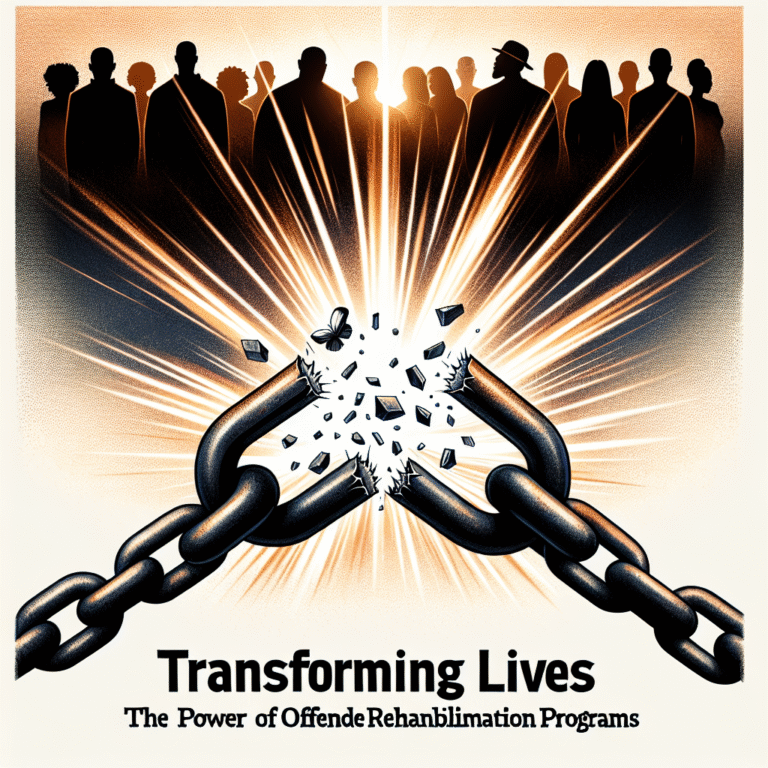
Introduction
In the digital age, the allure of the internet provides a double-edged sword. On one side, it offers boundless opportunities for connection, creativity, and commerce; on the other, it harbors a dark underbelly of crime and malfeasance. Understanding the motivations behind cybercrime—From Anonymity to Arrogance: Understanding the Motivation Behind Cybercrime—is crucial for grasping the complex psychology of offenders. As the internet continues to evolve, so do the tactics and motivations of cybercriminals, often hiding behind masks of anonymity until they are emboldened by a sense of superiority or arrogance. This article will take you on a journey through the motivations, behaviors, and case studies surrounding cybercriminals, uncovering the intricate web of psychology that drives individuals from anonymous acts to arrogant displays of criminal prowess.
Understanding the Anonymity Complex
The Draw of the Digital Cloak
The veil of anonymity provided by the internet is a significant motivating factor for cybercriminals. The ability to conceal one’s true identity allows individuals to explore malicious avenues without immediate repercussions. This section delves into how anonymity fosters an environment ripe for criminal behavior, discussing:
- Behaviors that flourish under anonymity: Increased risk-taking, lack of empathy, and moral disengagement.
- Psychological theories: The Social Identity Theory, which posits that individuals may act out of character when not identifiable.
Case Study 1: The Anonymous Hacktivists
An example of how anonymity manifests in cybercriminal behavior can be found in the actions of groups like Anonymous. Founded in the mid-2000s, this decentralized, international collective has taken part in various controversial actions, claiming to act for the greater good. However, their anonymity provides not only protection but emboldens them to defy legal and ethical constraints.
| Aspect | Description |
|---|---|
| Motivation | Social justice, anti-censorship |
| Methodology | DDoS attacks, website defacements |
| Outcome | Some successful campaigns, legal ramifications |
Analysis
Here, the actions of Anonymous highlight the paradox of anonymity: while it can empower some to fight perceived injustices, it also creates a breeding ground for reckless and harmful behavior.
The Transition to Arrogance
From Concealment to Confidence
As cybercriminals become more comfortable navigating the digital space, many develop a sense of arrogance. This trajectory from anonymity to arrogance significantly alters their behaviors and choices:
- Effects of reinforcement: Initial successes in crime can lead to a “superiority complex,” where criminals feel invulnerable.
- Psychological impacts: Cognitive dissonance and grandiosity often occur as individuals justify their criminal actions.
Case Study 2: The Rise and Fall of the Silk Road
The Silk Road, an online black market, exemplifies the arrogance that can accompany success in cybercrime. Ross Ulbricht, the platform’s creator, initially operated under the guise of anonymity but eventually displayed arrogance, believing he could evade authorities indefinitely. His story encapsulates the rise of confidence fueled by early successes but also serves as a cautionary tale.
| Aspect | Details |
|---|---|
| Crime | Drug trafficking, money laundering |
| Outcome | Arrested in 2013, sentenced to life in prison |
| Key Motivation | Belief in a personal mission to subvert the state |
Analysis
Ulbricht’s narrative illustrates how the journey from anonymity to arrogance can lead to catastrophic consequences when criminals underestimate legal authorities and the risks of exposure.
The Social Influences
Peer Networks and Community Norms
The online environment provides fertile ground for the development of cultures that normalize and celebrate cybercrime. Here, we examine:
- Influence of peer networks: How forums and communities foster a collective mindset.
- Normalization of deviant behaviors: Discussing certain online subcultures that glamorize hacking.
Case Study 3: The Lizard Squad
Lizard Squad, known for their DDoS attacks against popular gaming platforms, thrived in communities that celebrated their exploits. Initially celebrated by peers, their arrogance grew, leading to further malicious activities.
| Behavior | Description |
|---|---|
| Target | Online gaming services, social media platforms |
| Motivations | Attention, notoriety, financial gain |
| Consequences | Legal repercussions for several members |
Analysis
The Lizard Squad’s activities highlight how community support can amplify risks taken by individuals, creating an echo chamber that encourages increasingly deviant behaviors.
Economics of Cybercrime
Financial Gain as a Core Driver
Finance often lies at the heart of many cybercriminal actions. Here, we will cover:
- The black market economy: Exploring how anonymity allows for trading in illicit goods and services.
- Cryptocurrency: Its role in facilitating transactions while maintaining anonymity.
Case Study 4: Ransomware Attacks
Recent ransomware attacks, such as the Colonial Pipeline breach, showcase the financial dimensions of cybercrime, with hackers demanding payment in cryptocurrencies.
| Attack | Details |
|---|---|
| Type | Ransomware |
| Target | National infrastructure |
| Outcome | Business disruption, financial loss |
Analysis
The Colonial Pipeline breach exemplifies how financial motivations and the anonymity of cryptocurrencies can drive severe criminal behavior, resulting in extensive national ramifications.
Psychological Perspectives
The Mind of a Cybercriminal
Understanding the psychology behind cybercriminal behavior can illuminate why individuals are driven to crime. Key concepts to explore include:
- Psychopathy and narcissism: Traits often associated with cybercriminals that can contribute to their arrogance.
- Impacts of digital detachment: How the online environment can desensitize individuals to their actions’ moral implications.
Case Study 5: The Ashley Madison Hack
The 2015 breach of Ashley Madison, a dating site for extramarital affairs, illustrates personal motivations driven by psychological traits. The hacker, believing he was acting for the moral good by exposing infidelity, revealed how justifications can be rooted in personal arrogance.
| Aspect | Details |
|---|---|
| Motivation | Moral superiority, desire for fame |
| Impact | Financial losses, personal humiliation for victims |
Analysis
The Ashley Madison hack serves as a reminder that motivations can be deeply personal and varied, with arrogance often resulting from an inflated sense of morality or heroism.
Preventing Cybercrime: A Multi-Faceted Approach
Developing a Resilient Digital Society
In the fight against cybercrime, understanding motivations is crucial. Effective strategies include:
- Educational initiatives: Raising awareness about cyber ethics and the implications of anonymity.
- Collaboration among stakeholders: Engaging law enforcement, tech companies, and communities to create a united front.
Key Strategies
| Strategy | Description |
|---|---|
| Public education | Teaching safe online practices |
| Enhanced penalties | Deterrents through stricter legal consequences |
| Technology: Tools & protocols | Using AI and machine learning to detect crimes |
Conclusion
From Anonymity to Arrogance: Understanding the Motivation Behind Cybercrime reveals that the digital realm creates unique psychological dynamics—shadows of anonymity can lead individuals down paths of arrogance, often resulting in serious repercussions. Recognizing this duality is paramount for developing effective prevention strategies.
As members of an increasingly interconnected society, we all play a role in combating cybercrime—through education, vigilance, and support for policies that promote ethical online behavior. We must inspire the next generation to navigate the digital landscape responsibly, emphasizing that the true power of the internet lies not in anonymity or arrogance, but in connection and collaboration.
FAQs
1. What are the most common motivations behind cybercrime?
Cybercriminals are often motivated by financial gain, revenge, social or political causes, and sometimes sheer thrill or notoriety.
2. How does anonymity facilitate cybercrime?
Anonymity provides a safe layer of protection, allowing individuals to act without fear of immediate consequences, leading to riskier and more malicious behaviors.
3. Can cybercriminals be rehabilitated?
While some may learn from their actions and integrate into society positively, others may struggle with deeper psychological issues that contribute to their criminal behaviors.
4. What legal actions can be taken against cybercriminals?
Laws vary by country; however, many jurisdictions impose severe penalties, including fines and imprisonment, for cybercrimes.
5. How can individuals protect themselves from cybercrime?
Maintaining strong passwords, using two-factor authentication, being wary of phishing attempts, and educating oneself about safe online practices are crucial steps for personal safety online.
In crafting this comprehensive article on From Anonymity to Arrogance: Understanding the Motivation Behind Cybercrime, we’ve delved into intricate psychological, social, and financial factors that drive cybercriminal behaviors, aiming to equip readers with actionable insights for navigating the digital landscape safely and responsibly.

















